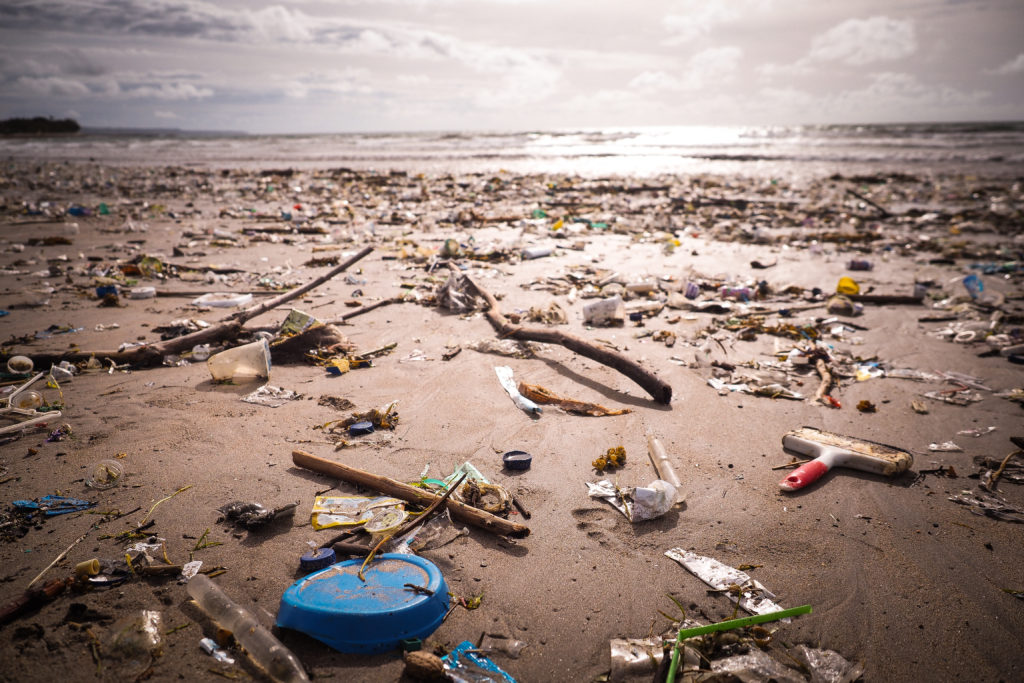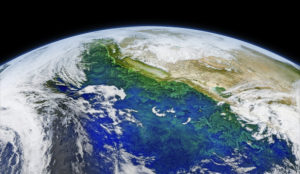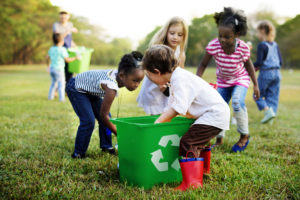
Blog
A Front Row Seat as Marine Plastic Takes the World Stage
Last week, leaders from across the world descended on Tokyo for the G20 Resource Efficiency and Marine Plastic Symposium. The week-long dialogue with the world’s leading scientists, NGOs, government representatives and other thought leaders shed light on the crisis of marine debris — especially plastics — and was a reminder of how critical recycling will be to a sustainable way forward.
When Consumer Brands Association President and CEO Geoff Freeman took the stage, his message to the other countries in the room was clear: learn from us.
The U.S. recycling system was born city by city, county by county. The unintended consequence of best intentions, however, is the fragmented, patchwork system we have today. A system perpetually confusing to American citizens that did not consider economies of scale in its design.
The G20 is working to address marine debris globally. While many of the represented countries are quite advanced in their systems, many attending the symposium are at the beginning stages of recycling. The G20 has an opportunity to design systems that are better prepared to succeed long term. They can, as Freeman analogized, skip the landline and go straight to the mobile phone.
Over the course of the week, hearing perspectives from countries of all sizes and geographies, three key themes emerged: we are at a point of real crisis; no one can solve this alone; and harmonization is key.
The Crisis is Worse Than We Thought
Improperly managed plastics are causing a global pollution crisis. This issue is not just a problem for coastal nations. Micro and macroplastics are making their way into our water and soil and they’re coming from a surprising range of sources. Three million tons of microplastics enter the environment from road abrasions and tire marks every year, for example, according to the United Nations Environment Program.
Eighty percent of marine debris is from land-based material that isn’t handled properly and finds its way into our rivers, coasts and oceans. The majority of plastic pollution is caused by poor or nonexistent waste management practices. For example, one of the presentations referenced Mombasa, Kenya, a city of 1.5 million people, where only 46% of solid waste is properly managed, leaving more than half of the city’s waste as litter.
The situation is dire and presents real opportunity. The secretary general of the European Recycling Industries’ Confederation (EuRIC), the group representing European recycling companies, Emmanuel Katrakis, shared that recycling one million tons of plastics has the environmental impact of taking a million cars off the road. Several global experts cited a clear demand for recycled plastics, driven in large part by the CPG industry’s leadership on recycled content targets. The investment community is taking notice too. A session featuring representatives from the finance community highlighted how global banks and institutions like the World Bank are bringing capital to the table with sustainability in mind, helping build infrastructure and finance sustainable waste and recycling systems around the world.
Collaboration is Critical
We must work collaboratively, not just across countries, but across stakeholders. The leaders of G20 nations put forward the Osaka Blue Ocean Vision earlier this year, setting a target for reducing marine plastic pollution entering the oceans to zero by 2050. ZERO.
To get to zero, there is no silver bullet. No single approach will work for every country. The Blue Ocean Vision strategy emphasizes inter-country collaboration and best practice sharing. Similarly, as we work within our countries to reduce waste, no single stakeholder will be able to solve the issue alone. If we’re serious about keeping plastics out of the ocean, we need to work together.
Standards and Innovation Are Key
The need for common definitions and regulations was a distinct theme. Closer to home, a lack of standards is preventing real progress in the United States. Consumer Brands’ position is that there is a clear need for uniform standards in the U.S., where thousands of conflicting recycling systems confound consumers.
Even with common definitions and standards, innovation is essential to success. The meetings in Tokyo highlighted the rise in popularity of refillable packaging, from TerraCycle’s Loop initiative in the U.S. to Japanese CPG companies offering refillable soap and shampoo bottles. There was a repeated emphasis on finding alternatives to plastics, where appropriate, or dramatic increases in recycled content for packaging, as many CPG companies have already committed to achieve.
On the flight home, I kept circling back to a comment made by Shardul Agrawala, environment and economy division head for the Organization for Economic Cooperation and Development (OECD): “No other issue has risen so quickly in public consciousness as plastics, plastics pollution and marine litter.” He’s right. It is our challenge to elevate that consciousness to action. And, as was made clear in Tokyo, the time to act is now.
Published on October 15, 2019
Our Updates, Delivered to You
Receive the latest updates from the Consumer Brands Association.



